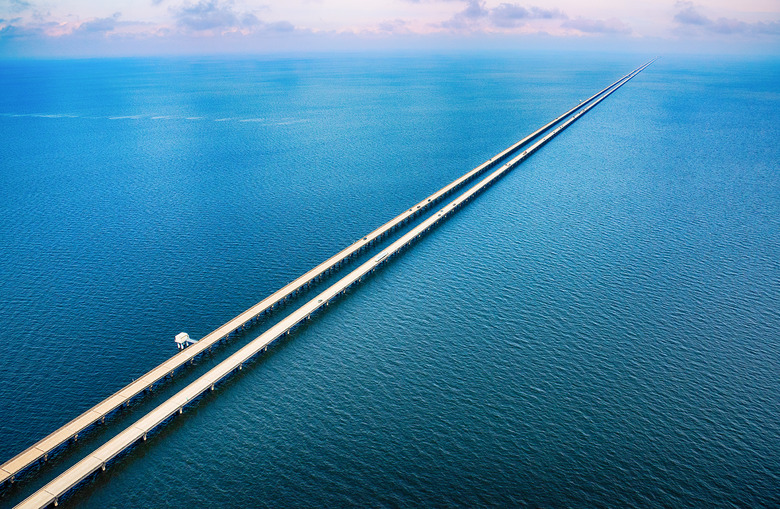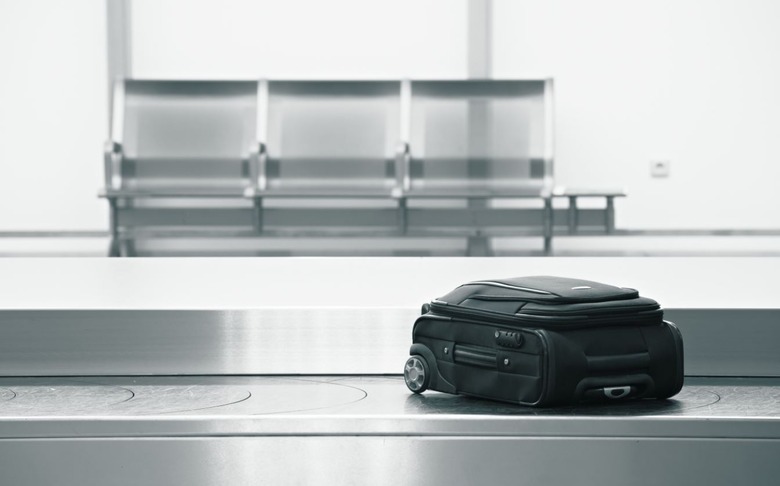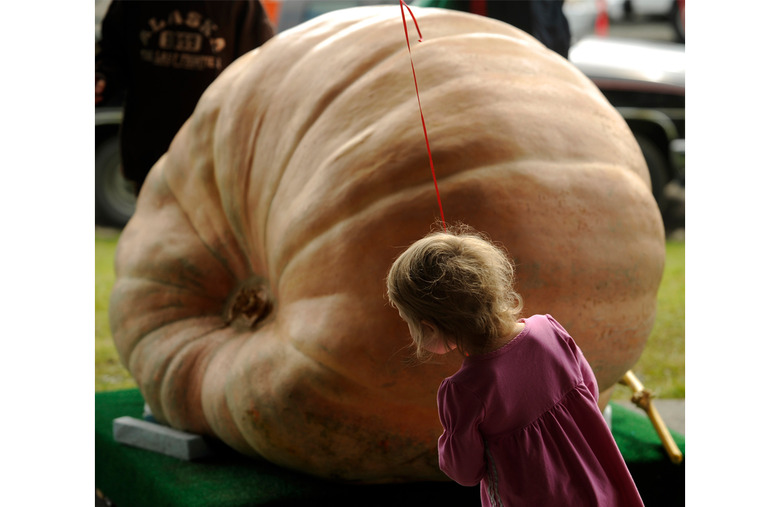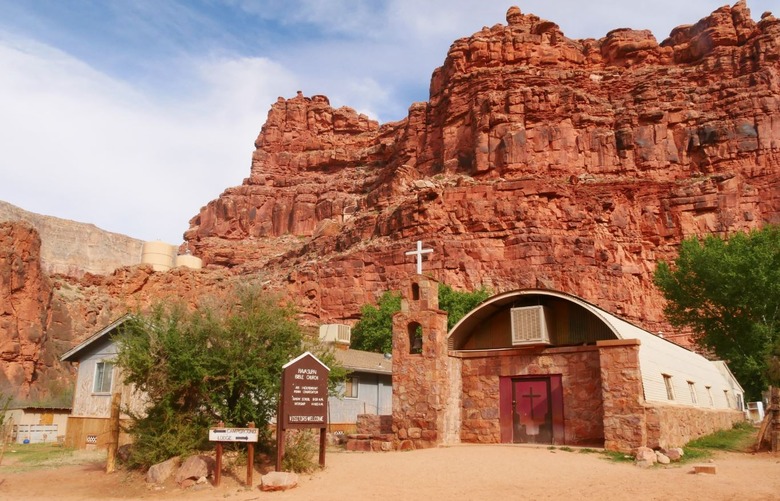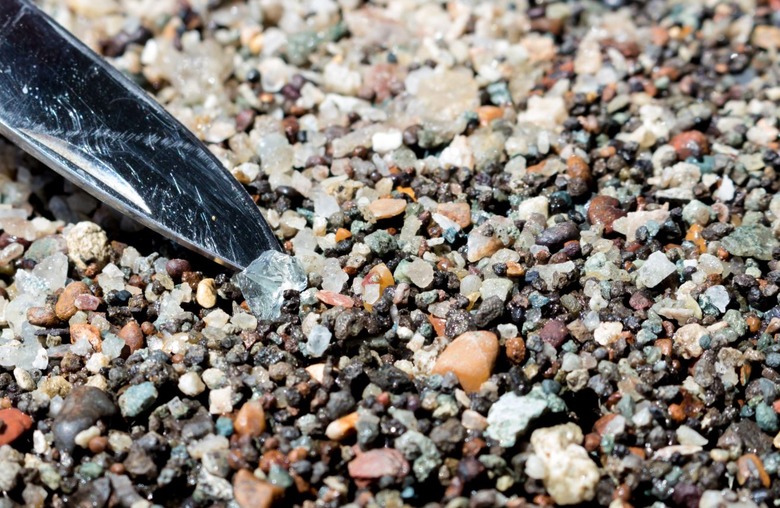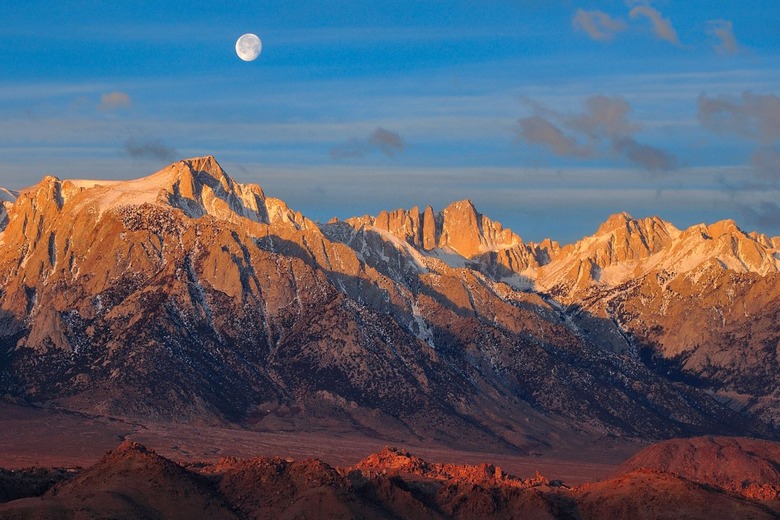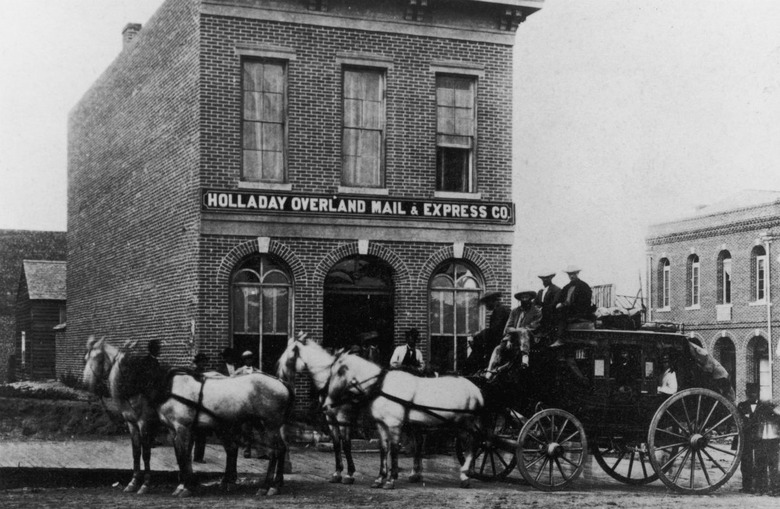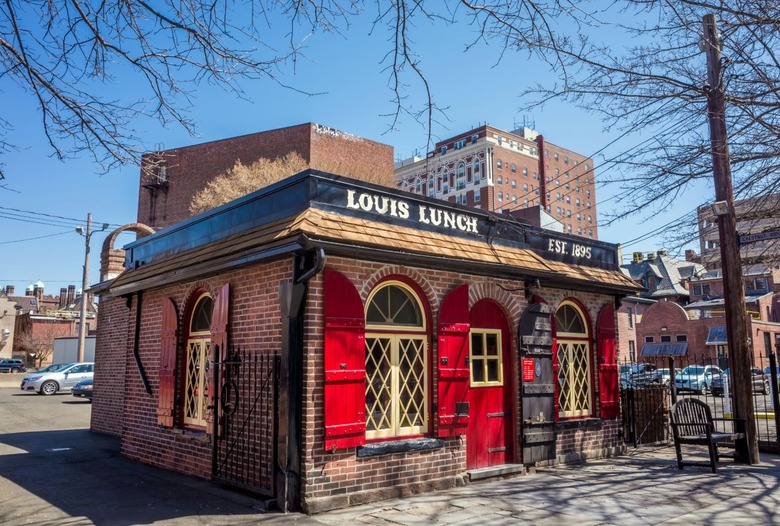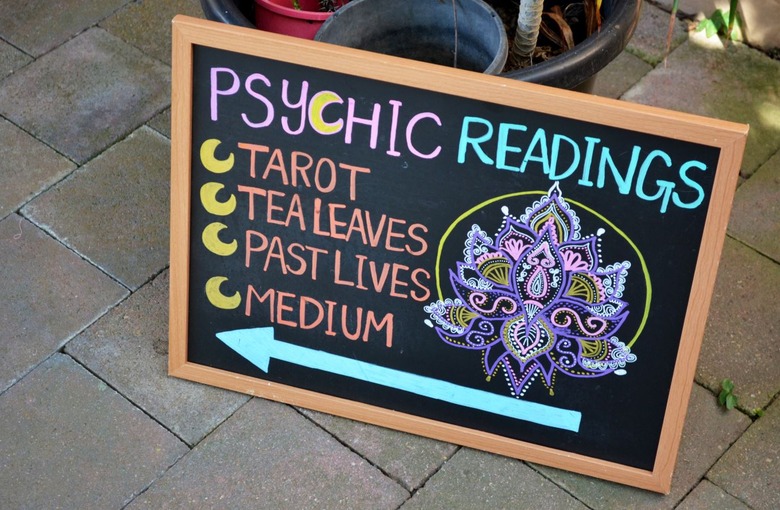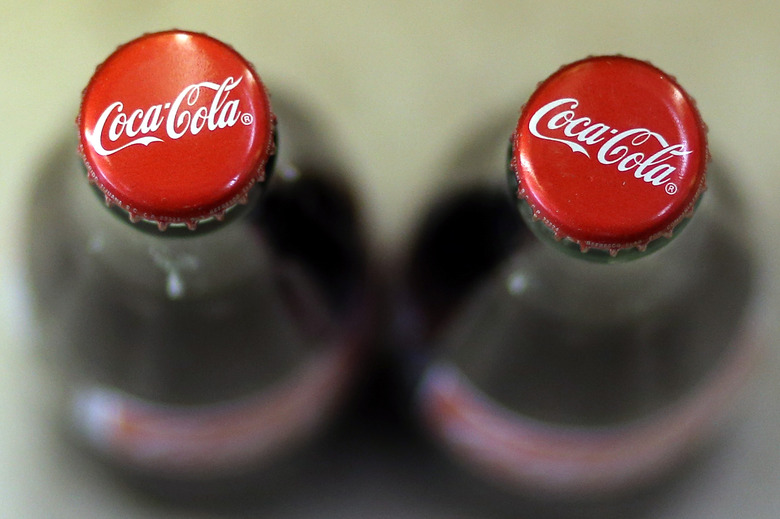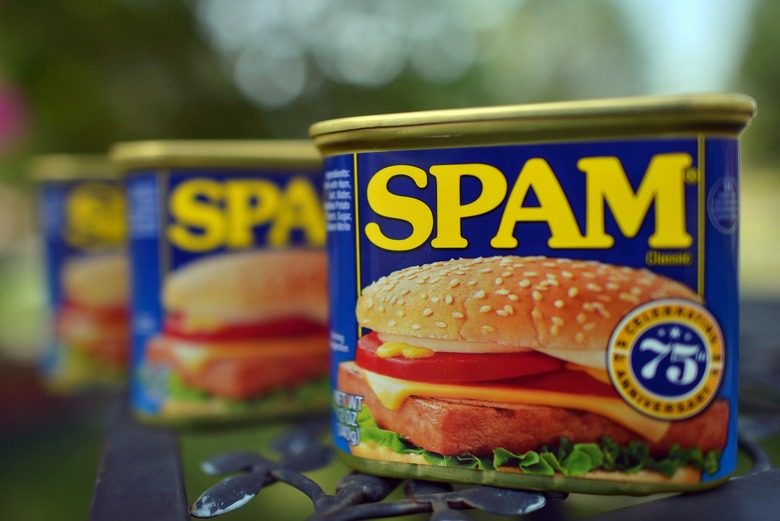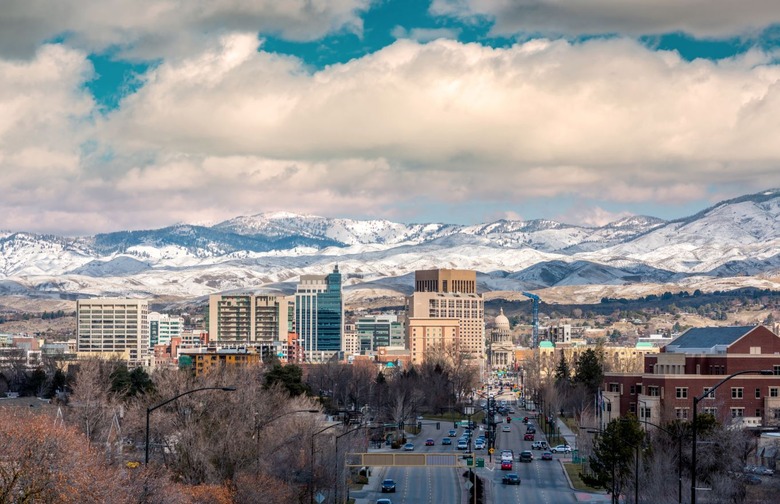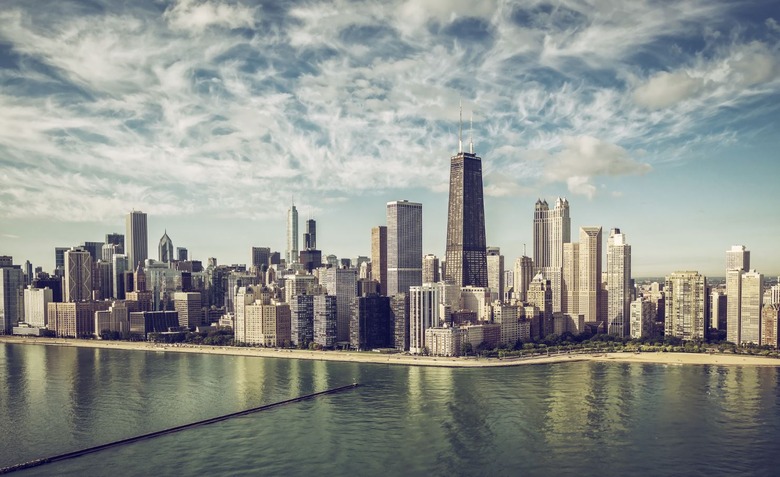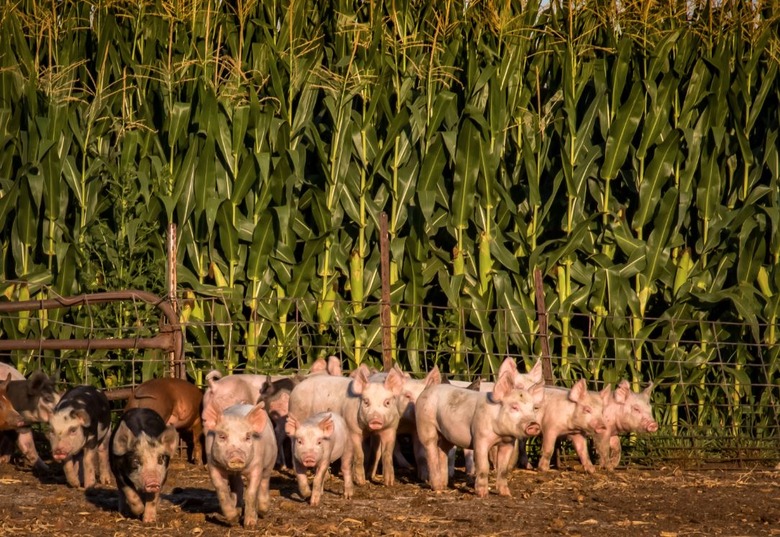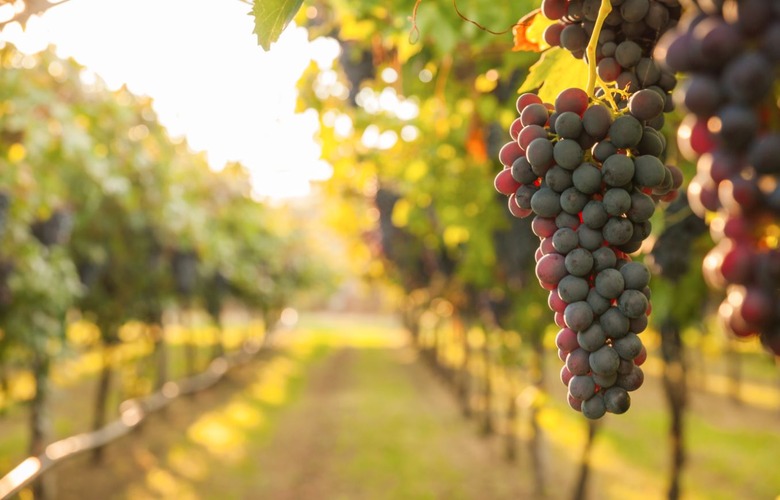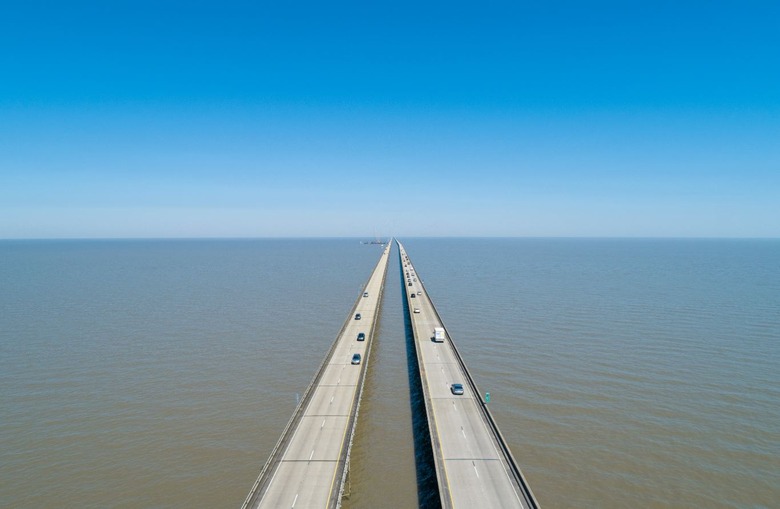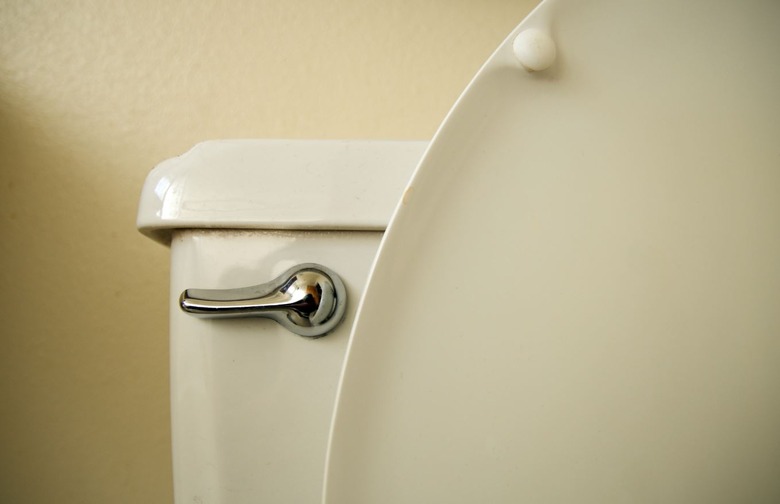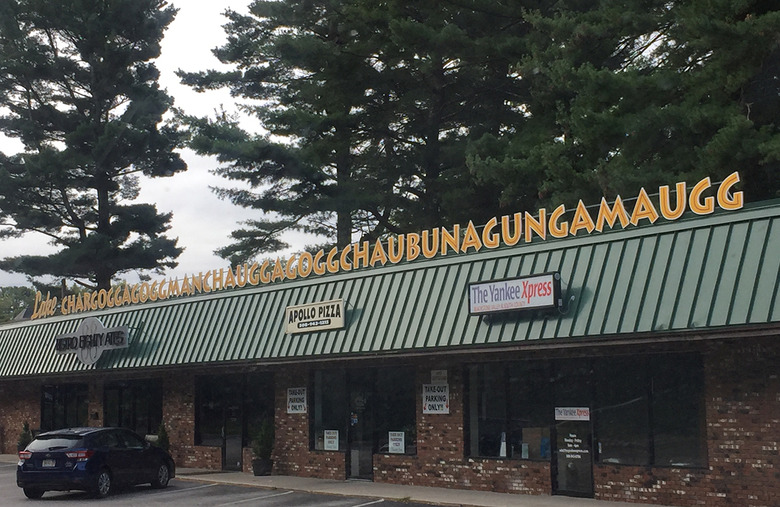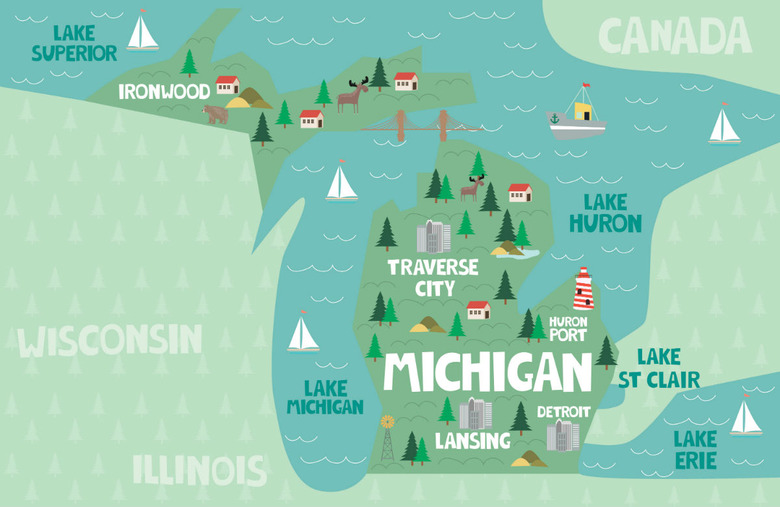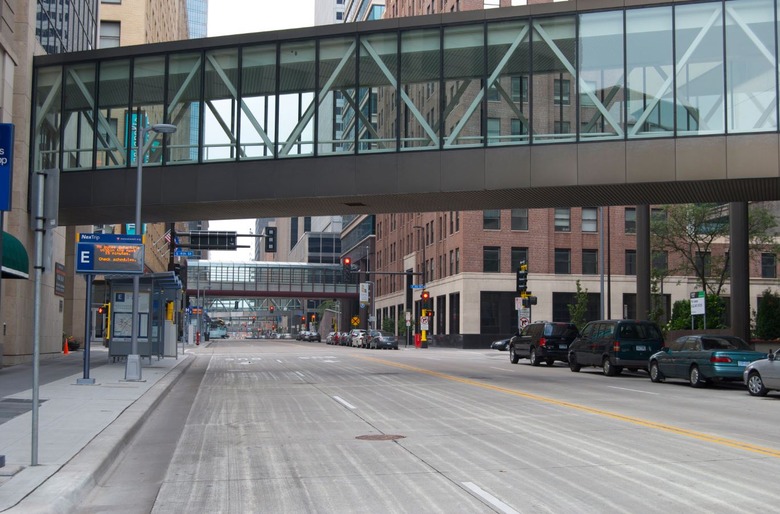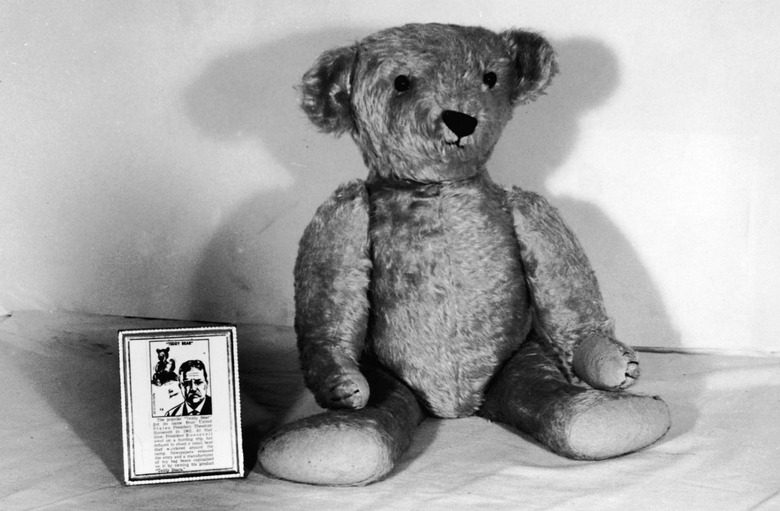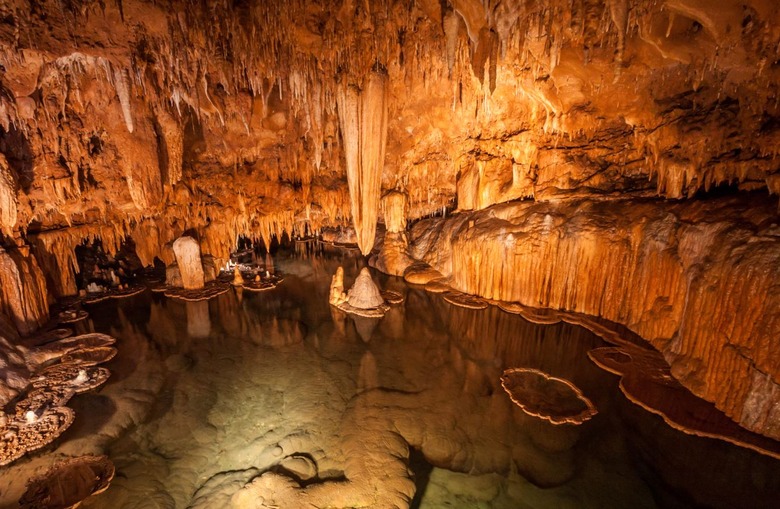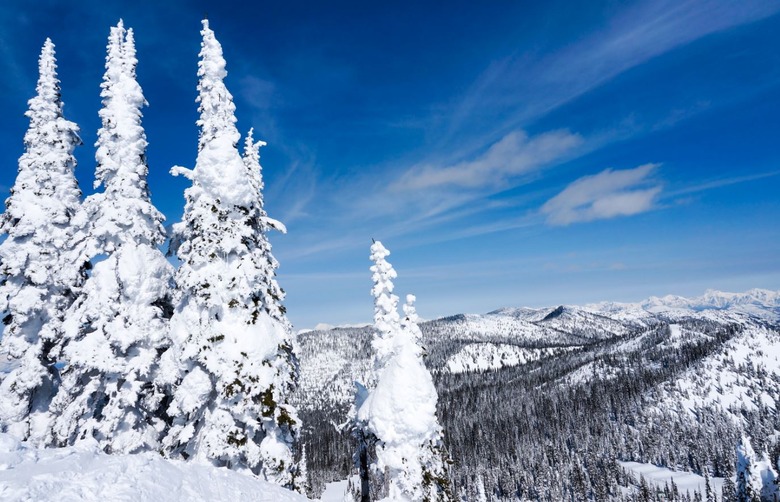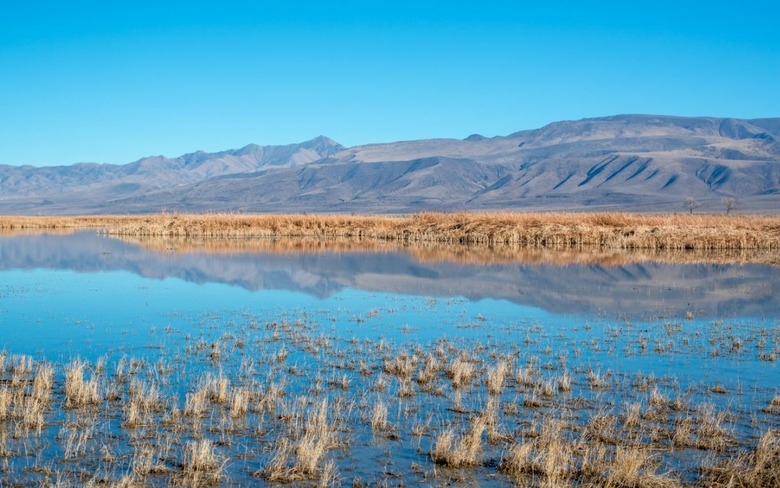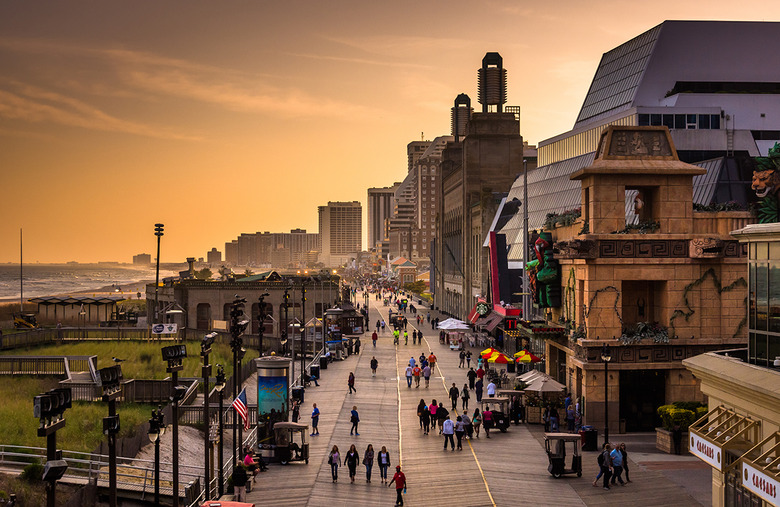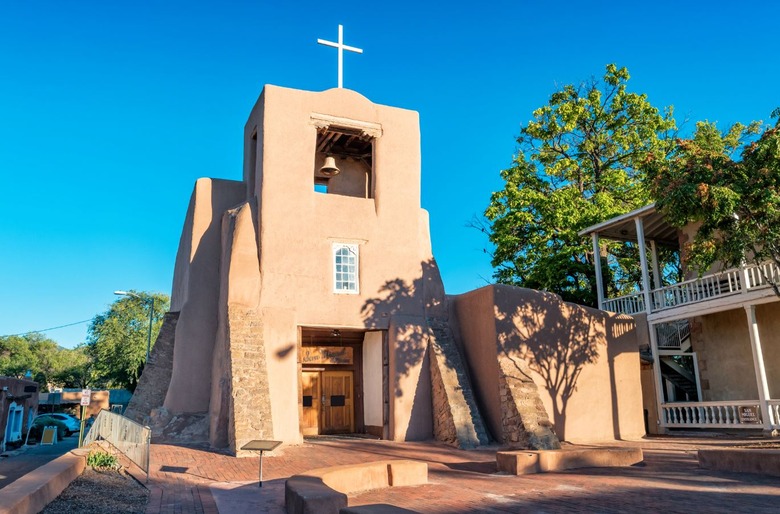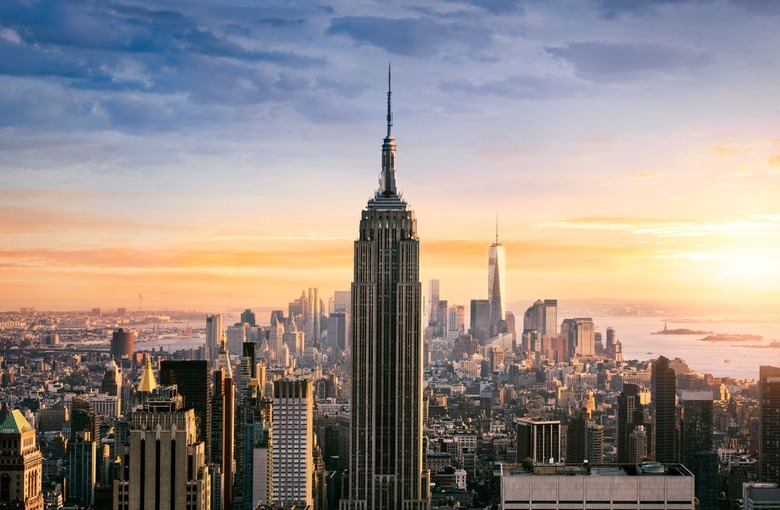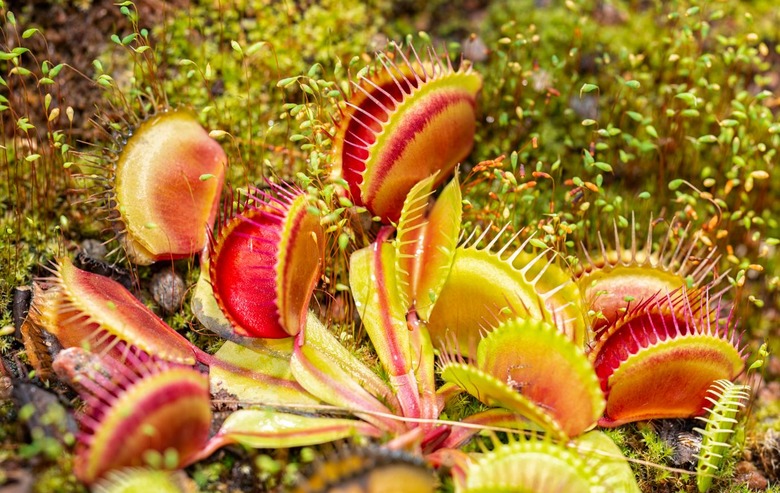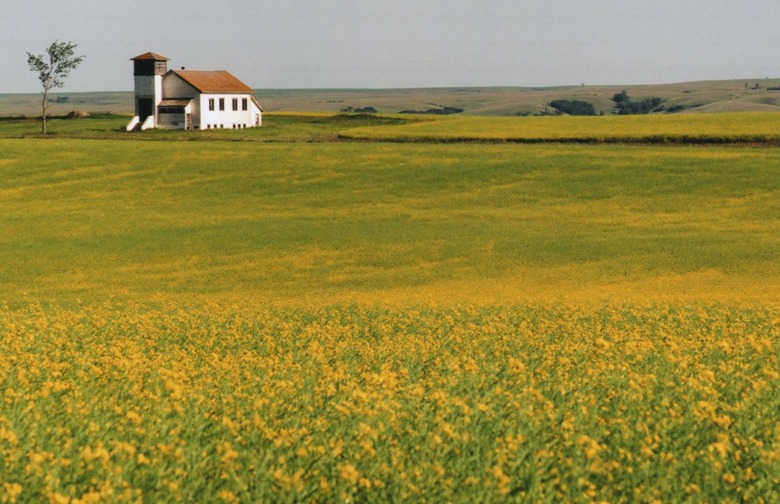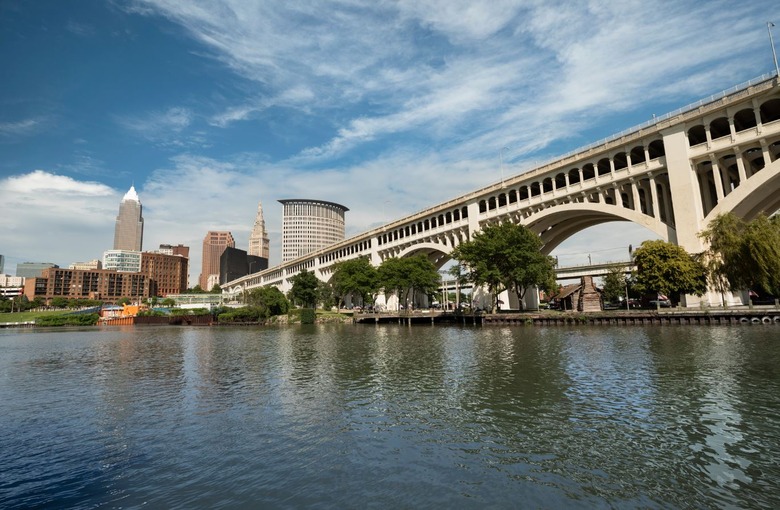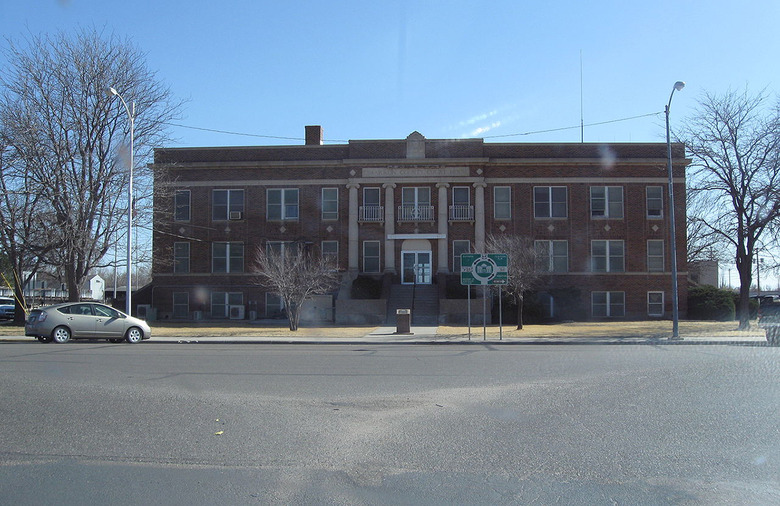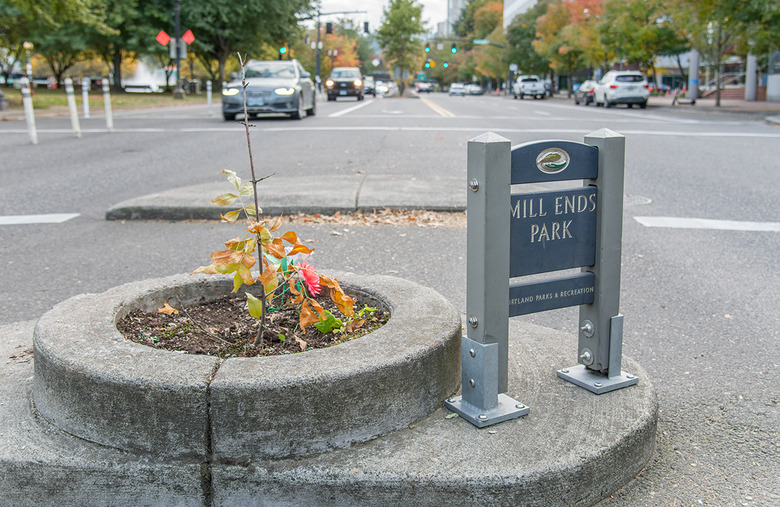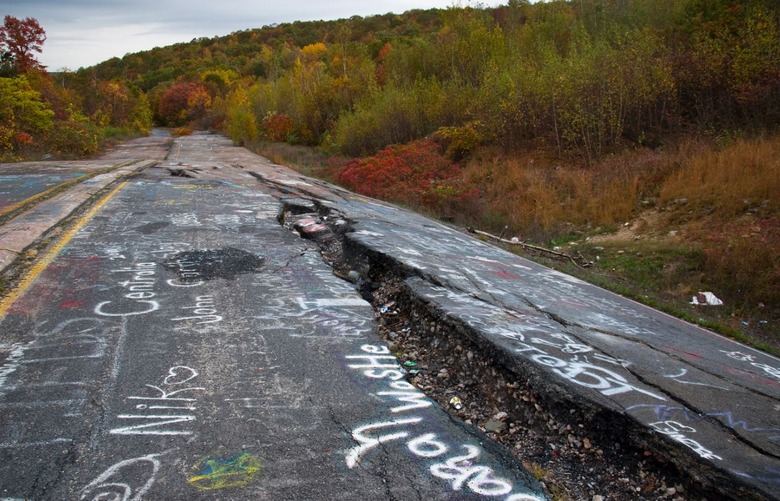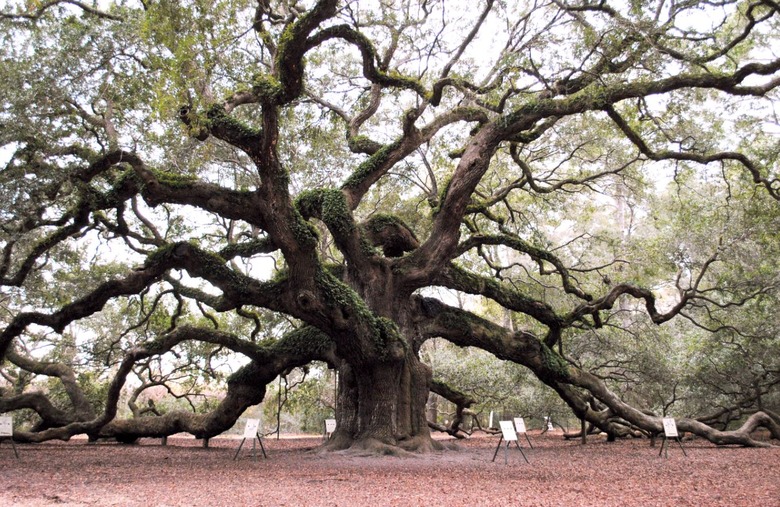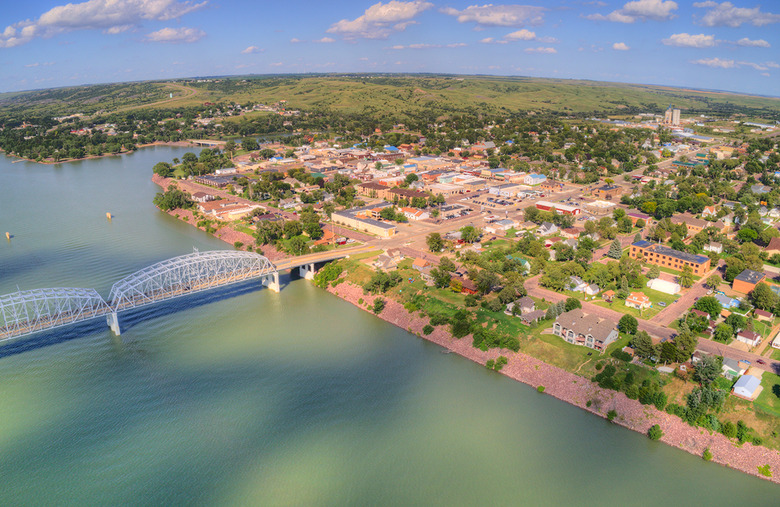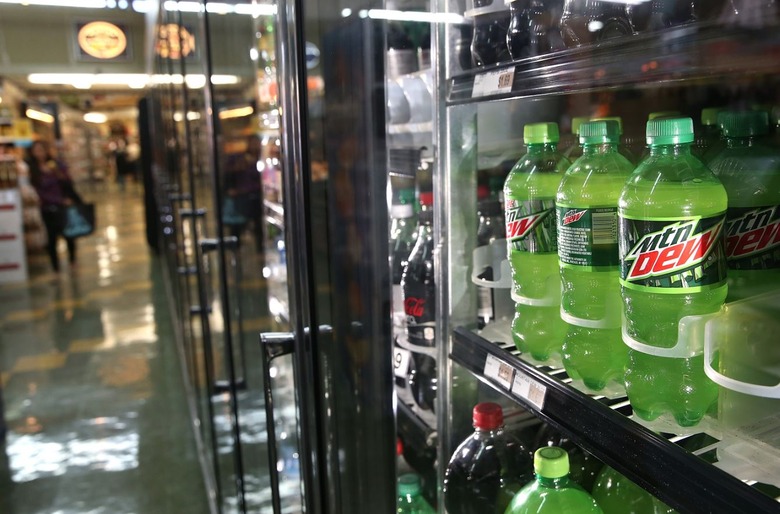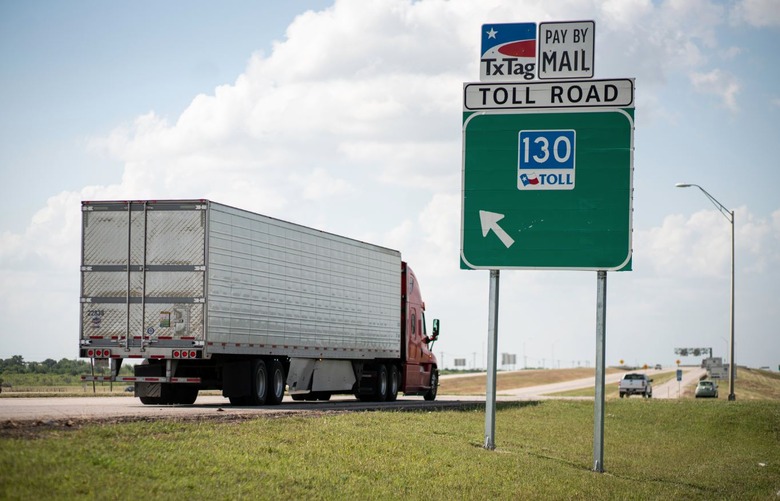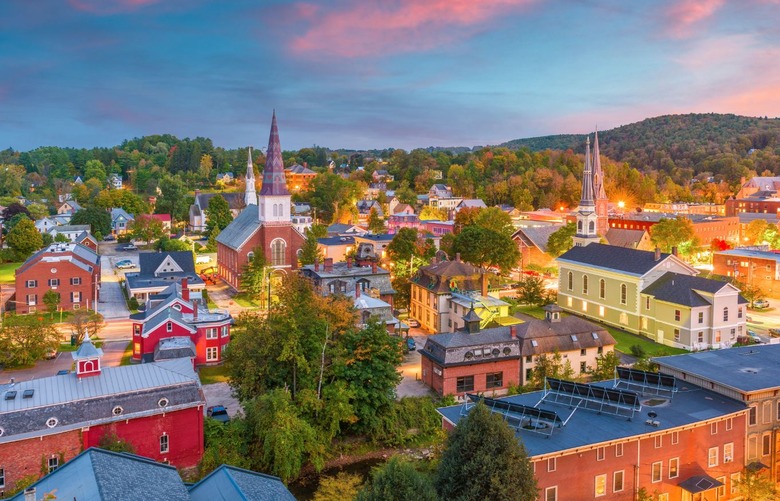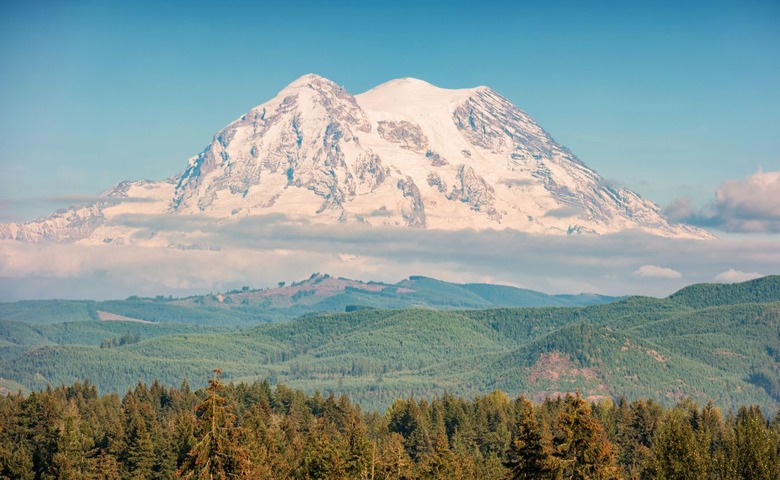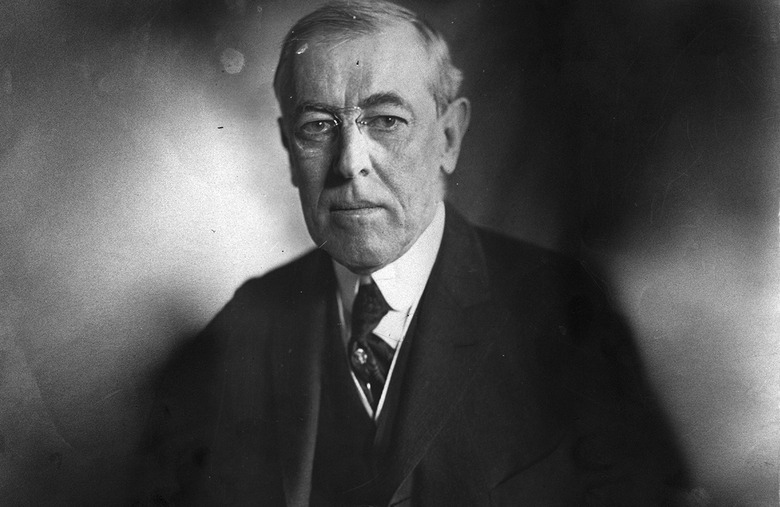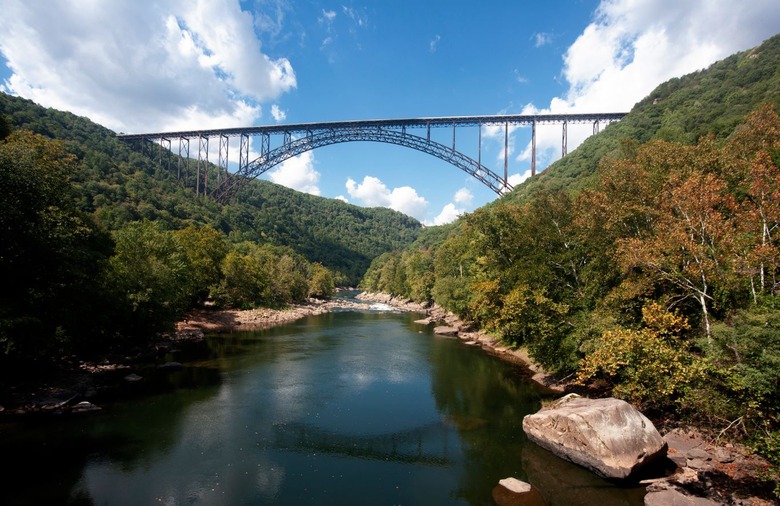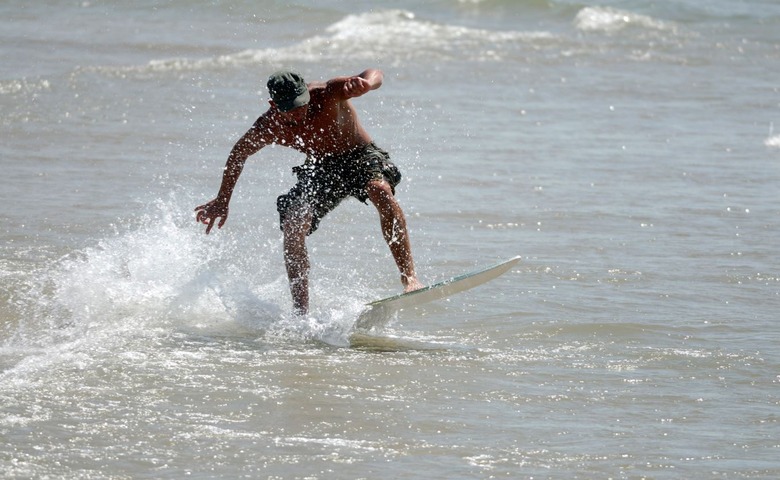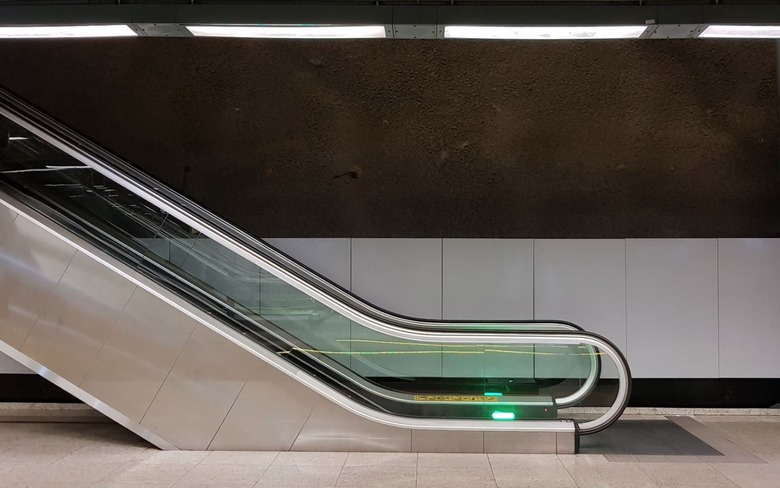Strange Facts About Every State
The United States is full of weird stuff. There are quirky roadside attractions, creepy haunted places and even historical sites that have their own wild secrets. In fact, there are so many things to discover, you can live in a state for your entire life and still not know all of its surprising facts and secrets. These are some of the strangest facts about every state and Washington, D.C., and even these oddities are just scratching the surface.
Alabama
An airport hassle even more obnoxious than missing your flight is losing your bag, and lots of bags are never claimed at all. The Unclaimed Baggage Center in Scottsboro, Alabama, is the nation's only retailer of lost luggage. Unclaimed items from all domestic airlines and other travel and transportation companies end up here, where more than 7,000 items are processed each day. Some of the wildest finds the company has made include a NASA space shuttle camera, a zebra skin and a live rattlesnake.
Alaska
Multiple Guinness World Record-setting vegetables have been grown in Alaska. What makes the Last Frontier suited for growing freakishly large veggies? In parts of the state, the sun can shine for up to 20 hours a day during the summer months, giving plants the fuel to grow extra-large. Examples of this large produce include a 138-pound cabbage, a 65-pound cantaloupe, 35-pound broccoli and a record-setting pumpkin that weighed a whopping 2,051 pounds. So perhaps the best beginning gardener tip is just to live in Alaska?
Arizona
Supai, Arizona, has the only post office left in the U.S. where mail is delivered by mule. A wrangler on horseback leads a train of mules as they make the 16-mile round trip into the Grand Canyon six days a week. The village of Supai is located on the Havasupai Indian Reservation, which is also home to one of the most stunning waterfalls in the world.
Arkansas
One park in Arkansas is less famous for its beautiful sights than it is for its beautiful rocks. If you find a diamond while scouring the 37-acre field at Crater of Diamonds State Park in Murfreesboro, Arkansas, you are allowed to keep the gem. The volcanic crater contains a variety of rocks, minerals and gemstones, including white, brown and yellow diamonds as well as amethyst, garnet, jasper, agate and quartz. More than 33,000 diamonds have been found there since 1972, including the largest diamond ever unearthed in America, the 40.23-carat "Uncle Sam" diamond.
California
Both the highest and lowest points in the contiguous United States can be found in California; the majestic peak of Mt. Whitney soars to almost 14,500 feet high and the Badwater Basin in Death Valley is 282 feet below sea level. Amazingly, the two are only about 88 miles apart as the crow flies.
Colorado
The state of Colorado actually once had three governors in one day. Back in 1904, Democrat Alva Adams won the gubernatorial election, but his Republican opponent, James H. Peabody, contested the election after learning that Adams had used "repeaters," or people who voted more than once. Adams, in turn, countered that Peabody had also engaged in fraudulent voting. After an investigation verified both claims, Adams was forced out of office and replaced by Peabody, under the condition that Peabody would resign within 24 hours. After resigning, Peabody was replaced by Lieutenant Governor Jesse F. McDonald. Colorado has plenty of other unique distinctions, including being one of the first two states to legalize recreational marijuana.
Connecticut
An astonishing amount of things were invented in Connecticut. These include the toothpaste tube, the Colt revolver, the Frisbee, the tape measure, the can opener and the nuclear-powered submarine. We can even thank Connecticut for the hamburger, which was created at Louis Lunch in New Haven in 1900 — the original version of this favorite food is still one of the best burgers in America.
Delaware
For a variety of reasons, Delaware has become a corporate tax haven, and more than 1 million businesses — including Coca-Cola, Disney, DuPont, GE and Google — have incorporated or re-incorporated there despite not having offices or headquarters there. With a 2019 population of about 973,000, that's more businesses than people.
Florida
Florida is known for many strange things — a list that seems to grow every day — but one of the weirdest things to do in Florida is visit the Psychic Capital of the World: Cassadaga. This tiny town, about a half-hour from Orlando, is home to many mediums, psychics and healers. Shops selling crystals and tarot cards line streets named Spiritualist Street and Mediumship Way.
Georgia
Coca-Cola's logo might be recognized by 94% of the world's population, but this famous soda was invented in Georgia by Dr. John Pemberton of Atlanta in 1886. It actually wasn't a hit right away. During the first year, sales of the soda averaged only nine drinks per day, and Pemberton passed away before his invention saw soaring success. Today, Atlanta is home to the World of Coca-Cola, a museum where visitors can learn all sorts of fun facts about this beverage's storied history.
Hawaii
Considering Hawaii, the happiest state in America, has an entire food festival dedicated to Spam, it may not shock you to know that Hawaiians eat more of this canned meat product than any other state in America. How much do Hawaiians eat? About 7 million cans annually, according to the company.
Idaho
Why watch the ball drop in Times Square when you can watch the potato drop in Boise? Since 2013, thousands of "spec-taters" have gathered at the Idaho State Capitol for one of the more unique New Year's Eve traditions in the U.S. As the clock strikes midnight, a giant, illuminated "GlowTato" is lowered from above. If you can't make it to Idaho to see this, don't worry, every state has an ideal place to ring in the New Year.
Illinois
Every state may have its own slang, but most states don't have a completely made-up language. Until 1969, the official language of Illinois was technically "American" as opposed to English. This was set into law in 1923 and was aimed at "certain Tory elements in our country who have never become reconciled to our republican institutions and have ever clung to the tradition of King and Empire."
Indiana
In 1897 there was a bill introduced by the Indiana Legislature to round up the lengthy decimal value of pi (generally shortened to 3.14) to 3.2, after physician Edwin J. Goodwin discovered what he believed to be a new way of solving the old mathematical riddle of "squaring the circle," which is impossible. The Indiana Pi bill never became law — close call — but Hoosier pie remains one of the most iconic pies in America.
Iowa
Iowa is home to a third of the nation's hogs, with more than 22 million being raised at a time. And with a population of only about 3.2 million people, this means that there are a lot more pigs (and bacon) than humans there.
Kansas
Pizza lovers may be interested to learn that Pizza Hut was actually born in Kansas. Two brothers opened the very first Pizza Hut in downtown Wichita in 1958 after borrowing $600 from their mother. They decided on "Pizza Hut" because the sign had room for only eight letters. Today, Pizza Hut is among America's favorite pizza chains.
Kentucky
When people think of Kentucky, most will think of bourbon or the state's signature drink, the mint julep. But Kentucky is one of those states you didn't know made wine. Surprisingly, Kentucky is home to America's first commercial winery, fittingly named First Vineyard. It was founded in 1798 by John James Dufour in what is known today as Nicholasville and was entered into the National Historic Register in 2015.
Louisiana
Louisiana is home to the longest continuous bridge over a body of water in the world. The Second Lake Pontchartrain Causeway is nearly 24 miles long and connects the towns of Metairie (just outside New Orleans) and Mandeville. It's one of the most amazing bridges in the world and something you need to see to believe.
Maine
Strong, Maine, was once known as the Toothpick Capital of the World, producing 90% of all wooden toothpicks manufactured in America — more than 20 million a day. The final mill closed down there in 2003, though, so now the number's been whittled down to zero.
Maryland
In 2004, Maryland instituted a "flush tax" of $30 per year on homeowners in order to improve sewage treatment plants. The amount has increased to $60 per year, so if you live in Maryland, you're paying $5 a month for the privilege of using the bathroom.
Massachusetts
Webster Lake in Massachusetts has another name, but it doesn't exactly roll off the tongue. The name? Lake Chargoggagoggmanchauggagoggchaubunagungamaugg. The name — which has 45 letters — dates from when it was a gathering place for the local Nipmuck tribe, and it generally means "Fishing Place at the Boundary." Lake Chaubunagungamaug, as it's sometimes shortened to, is a place only East Coasters know about.
Michigan
Michigan is the only two-part state in the country. It is made up of two peninsulas — the Upper Peninsula and Lower Peninsula — with the Straits of Mackinac separating the two. It's also the only state that borders four of the five Great Lakes. Due to this unique geography, it has the longest shoreline of every state except for Alaska. That makes for some great underrated beach towns.
Minnesota
In the mid-1950s, a Minneapolis businessman named Leslie Park proposed connecting buildings via covered pedestrian bridges as a way to revitalize downtown and protect residents against the harsh winter elements. The first one was opened in 1962, and the idea took off. Today, Minneapolis is home to the world's largest "skyway" system, connecting 80 blocks spread out over 8 miles.
Mississippi
Ever wonder where the term "teddy bear" came from? In 1902, President Theodore Roosevelt was hunting near Onward, Mississippi, with the state's governor and was the only one in the group who hadn't shot a bear. When one was found and tied to a tree for him to shoot, Roosevelt refused to do so. A cartoon satirizing the event appeared in the Washington Post later that year, inspiring a candy shop owner to create and sell a stuffed bear in his honor dubbed "Teddy's Bear."
Missouri
One of Missouri's many state nicknames is the Cave State. It's home to more than 6,300 recorded caves. There are three show caves open for public tours in the state park system, including the breathtaking Angel Showers formation in Ozark Caverns at Lake of the Ozarks State Park.
Montana
The greatest recorded temperature change in 24 hours took place in Browning, Montana, on Jan. 23 and 24, 1916, according to the Guinness Book of World Records. During that span, the temperature fell from 44 degrees F to minus 56 degrees F. This extreme weather condition was a drop of 100 total degrees.
Nebraska
Nebraska may have the "koolest" state drink in the country. Kool-Aid was invented in Hastings, Nebraska, by Edwin Perkins in 1927, and the drink became the official state soft drink of Nebraska in 1998. There's even an annual festival held there each August to honor the drink mix, called Kool-Aid Days. And if you didn't know that, you probably didn't know these other facts about Kool-Aid.
Nevada
In 1940, a human skeleton was discovered in a small cave in the foothills of Nevada's Stillwater Mountains that was dubbed the Spirit Cave Mummy. More than 50 years later in the 1990s, radiocarbon dating revealed that it was in fact more than 10,000 years old, making it the oldest natural mummy ever found.
New Hampshire
If you're over the age of 18, there's no law in New Hampshire mandating that you buckle your seatbelt. Drivers and adult front seat passengers must wear seat belts in the District of Columbia and every other state except New Hampshire. You are, however, still required to follow all the other rules of the road.
New Jersey
The United States is home to many amazing historic boardwalks, but the first and longest in the world is located in Atlantic City, New Jersey. The famous Jersey Shore landmark is 5.5 miles long and is where you can find an iconic Atlantic City souvenir: saltwater taffy.
New Mexico
Quick, name the oldest capital city in the United States. Did you guess Boston, Massachusetts? Richmond, Virginia? Nope. It's Santa Fe, which was settled by the Spanish around 1609-1610. To put that in context, the Pilgrims didn't even arrive in Plymouth until 1620. Santa Fe is rich in history with a lively art and food scene, making it a top vacation choice for retirees.
New York
We tend to think of zip codes as being the domain of neighborhoods, and for much of New York City, that's the case. But some of the city's most famous buildings actually have zip codes of their own, including the Empire State Building (10118).
North Carolina
The Venus flytrap is one of the most famous and intriguing plants on earth, but it's actually only native to a 90-mile radius around Wilmington and the North Carolina Botanical Garden. For this reason, it's been dubbed the North Carolina state carnivorous plant.
North Dakota
One of the tiniest towns in America and the smallest incorporated town in the state of North Dakota is Ruso, which has a population of just four. There were only three inhabitants when its longtime mayor, Bruce Lorenz, died at age 86 in 2018, which caused a problem: In order to be incorporated, a community needs at least three residents. Thankfully, a nearby couple, Greg and Michelle Schmaltz, moved to the town later that year, saving it from disincorporation.
Ohio
In the '60s, Cleveland's Cuyahoga River was so polluted that it was essentially covered with a permanent oil slick, and the river actually caught fire at least a dozen times. The 1969 fire proved the most consequential, though, as the uproar it caused finally spurred the city to clean it up and it served as an inspiration for the founding of the United States Environmental Protection Agency and for many Americans to take environmental sustainability seriously.
Oklahoma
Outside of the attack on Pearl Harbor, there were other bombings of the U.S. during World War II. Boise City in the Oklahoma panhandle was also bombed on the night of July 5, 1943 — but as the result of accidental friendly fire when an American training run went off-course. Six 100-pound dummy bombs rained down on the courthouse square, leaving 4-foot craters but thankfully causing no injuries.
Oregon
Leave it to the colorful city of Portland to be home to the world's smallest city park. At 2 feet wide and only 452 square inches, Mill Ends Park is part of a median on SW Front Avenue and was created in 1948 by local journalist Dick Fagan as a colony for leprechauns and a place for snail races. If you're looking for a true park experience, you should probably visit one of these underrated parks instead.
Pennsylvania
One of the most mesmerizing places in the world is the abandoned town of Centralia, Pennsylvania, where a coal mine fire from 1962 is still burning underground. Due to the smoke and ongoing danger from the fire, which remains fueled by abandoned mine tunnels, the state forced out all the town's residents and condemned all its buildings, although a handful of holdouts remain in this ghost town.
Rhode Island
Ever hear of coffee milk? Unless you live in Rhode Island, probably not. It's similar to chocolate milk, but instead of adding chocolate syrup to milk, it's coffee syrup that's stirred in. It's so popular that it's been dubbed the official state drink, making it one of the coolest official state foods in the country.
South Carolina
Believed to be the oldest living structure east of the Mississippi River, the Angel Oak is located on Johns Island outside Charleston, a U.S. island you may never have heard of. It stands 65 feet tall and provides 1,700 square feet of shade, and some of its branches are so heavy that they rest on the ground. It's estimated to be 1,500 years old.
South Dakota
While Florida might be famous for its white-sand beaches, the state of South Dakota actually boasts more miles of shoreline than the state of Florida. Rivers and glacial lakes with crystal-clear blue waters dot the South Dakota landscape.
Tennessee
Popular soda brand Mountain Dew can trace its roots to Tennessee. It was invented in Knoxville in the 1940s by brothers Barney and Ally Hartman as a mixer for low-quality whiskey, and the name itself is an old slang term for moonshine.
Texas
Everything is bigger in Texas, including the speed limit. In fact, you'll find the highest legal speed limit in the country as you drive through Central Texas outside Austin. The speed limit on Texas State Highway 130 is 85 mph.
Utah
The residents of Utah consume the most Jell-O per capita in the country. It's so beloved that this retro food became the official state snack, joining a long list of unique official state foods.
Vermont
Vermont's capital, Montpelier, is the smallest capital in the country by population, with only about 8,000 residents. Even more shocking is that it is the only capital city in the U.S. that does not have a McDonald's — the nearest one is located just outside of the city, in Barre.
Virginia
The state of Virginia claims to have actually had the "First Thanksgiving" in 1619, predating the famous feast in Plymouth, Massachusetts, by almost two years. According to the Smithsonian, however, the first recorded Thanksgiving gathering held by Europeans in North America occurred even earlier in Newfoundland, Canada, on May 27, 1578. Regardless, those historic celebrations don't look a lot like the food spreads we serve today.
Washington
Mt. St. Helens may be the most well-known volcano in Washington, but it is actually only one of five major active volcanoes in the state, including Mt. Baker, Glacier Peak, Mt. Adams and Mt. Rainier, which is the highest mountain in the state and considered to be one of the most dangerous volcanoes in the country.
Washington, DC
The nation's capital might seem like a fitting place to bury the country's presidents, but history buffs might know that only one president is interred within D.C.'s borders. Woodrow Wilson is entombed at Washington National Cathedral. Two are buried at Arlington National Cemetery, located just outside of the district: William Howard Taft and John F. Kennedy.
West Virginia
The New River Gorge Bridge is one of the most iconic landmarks in West Virginia. It's the longest single-arch bridge in the Western Hemisphere and was featured on the state's commemorative quarter. It's also notable in another way: On the third Saturday of every October, BASE jumpers are allowed to jump off of it.
Wisconsin
Australia, Hawaii, South Africa ... Sheboygan, Wisconsin? Believe it or not, this underrated American city is renowned for its great surfing, so much so that it's been dubbed "the Malibu of the Midwest." Surfers take to Lake Michigan year-round, but prime surf season is actually during the winter.
Wyoming
There are only two escalators in the entire state of Wyoming (technically four, because they both have ascending and descending sides), and they're both located in Casper, one in Hilltop National Bank and the other in First Interstate Bank. Apparently, they're such a novelty that they're considered something of a tourist attraction. Escalators are legal, though underutilized, in Wyoming, but there are plenty of outdated prohibitions and wacky laws across the United States.
More from The Daily Meal:
The Most Iconic Food Mascots of All Time
What Breakfast Looked Like the Year You Were Born
What Is an IPA? And Other Beer Questions, Answered
The Greatest Food Debates of Our Generation
Vegetables That Are Fruit and Other Common Foods That Aren't What You Think
